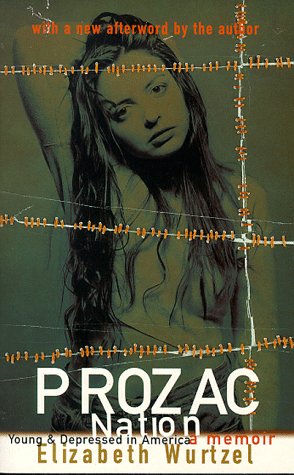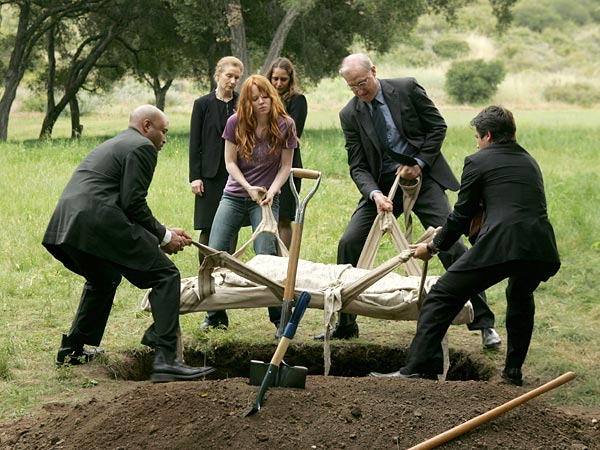But I digress. In the last few years Rogers has exploded really more than any of these other towns for reasons I have yet to figure out (especially considering it's a dry county, which yes, means you can't buy alcohol anywhere in Benton County). Every chain store and restaurant you can possibly imagine (and some you can't....) have moved in, with shopping centers, gated communities, and suburb upon suburb upon suburb sprouting up in every direction, with names like Camelot Estates, except they all look the same, all the houses are fucking ginormous, and at last inspection, most of them remain largely empty. Town has really started moving south, out by my parents' house, which used to be in the fucking country, and last time I was here I rode my bike through a large, turny, sprawling neighborhood out behind my parents' property (5 acres that they're holding onto for dear life!) that was complete, but every single house was empty. It was really eerie, and felt weirdly post-apocalyptic or something.
Anyway, I was talking to my ex about all of this, and I was arguing that though it was all very nice and good for the people living here and the economy and all that, I just really despised all of it. I remember once upon a time not so long ago, that with the exception of Wal-Mart, almost every business in Rogers was locally owned and unique. Getting a Burger King was a novelty when I was about 6, and for the most part, it was all neatly contained. You had the historic downtown area, with lots of neat little shops, a few apartments, the library, and lots of tiny old houses with big porches and bigger character. A couple of streets branched off from downtown, both north and south and east and west, but that was about it. As of today, with the exception of a smattering of authentic Mexican restaurants, downtown is the only part of town that has retained any character, walkability, or local flavor (there's even a really hip coffee shop with Morrissey posters and hipsters and shit).
 The old Peachtree Hotel downtown, now a retirement community.
The old Peachtree Hotel downtown, now a retirement community.It's hard to make people like my family understand why despite "having everything you could ever want" this place feels more like hell to me than ever (so I don't try, I just let it go, because why bother). My ex was arguing that despite the plasticity, sameness and sprawl of it all, the growth meant that attitudes were changing. When we were in high school, if you went to the movies with blue hair, or were 2 guys walking around downtown together after dark, you were taking your lives in your hands. Not so anymore, and I see his point. If you go to the movies now, you see all kinds of people, from frat boys, to soccer moms, to young, punk rock kids, to even (gasp!) black people! (I kid you not, you wouldn't have seen a black person in Rogers more than 5 years ago.)
While I agree with him, I find it frustrating that you have to trade one for the other. Or do you? Austin is a town that has proved you can grow but still retain local flavor and character. Maybe I'm romanticizing Rogers' past after all.
There are signs of good things, though. The new centerpiece of the city, the Pinnacle Promenade, an outdoor, pedestrian mall filled with stores like Banana Republic and Sephora, is creating a density all its own. It's right next to the highway (and about 2 seconds from my parents), has an interesting, playful design (it's all very art deco and actually sort of attractive), and is driving up real estate. They're building a huge, new state of the art hospital (and turning the old one near downtown into a solely mental health facility), a Westin hotel, and among other things...condos! (Granted, the ones going in right now are above a bank and a gas station, but the impetus is there.) Signs are sprouting up in large pastures near my parents' house advertising space for vertical mixed use, and apparently, some people are even starting to pressure city council to start looking into public transportation! That'll never, ever happen, but at least people are thinking about these things.
 An outdoor scene from the Pinnacle Promenade.
An outdoor scene from the Pinnacle Promenade.Being at home sometimes is exhausting and enfuriating as I watch all of this happen. If I have my way about it, I'll never live here ever again, so I have no emotional attachment to it, and the people here seem to like it, so I guess I should just stop worrying. But when they put in a new Wal-Mart and shopping center about a 5-minute walk from my parents' house and call it Tuscany Square, and make it look like what I can only presume is some stupid developer's version of Venetian, except it's hideously ugly and stupid, and isn't even the correct region of Italy to call Tuscan, it makes me so depressed I can't stand it. Maybe not because I see every ounce of character this city ever had being sucked away, but maybe because I know that this happens everywhere. And people like it. And they think it's cosmopolitan and urban, and hating it makes me feel like such a self-righteous schmuck, but I do hate it. And it takes 45 minutes to get anywhere, even though the town is about 7 miles wide. I mean, is there no foresight? I guess the land is limitless, but don't they realize the resources aren't? The whole area is one giant, faceless suburb not even in search of a city and it all makes me feel so disconnected from everything (including my past) that it actually creates anxiety for me when I'm here.
I guess that's why for the most part, I try not to leave my parents' house when I visit. Which suits me just fine.


 A cell for an immigrant family.
A cell for an immigrant family.











